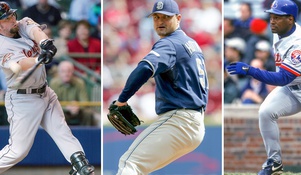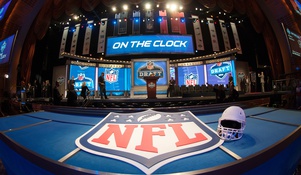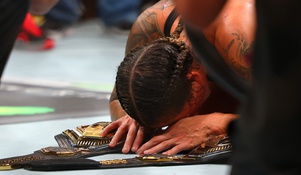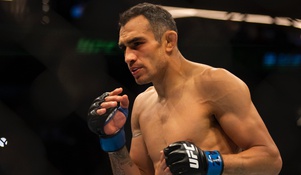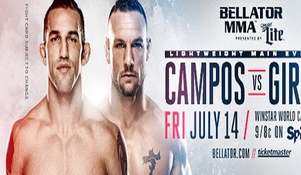Ronda Rousey's Groundbreaking Career Post-UFC 207
I'm not gonna sugar coat it. Ronda Rousey got beat up. Bad. This was Tyson-Michael Spinks bad. Whatever hope either Rousey or Dana White had of a Hollywood ending where she reclaims her title belt as the music swells was emphatically put to rest. Many of us sit here the day after looking upon this modern day Icarus, one that flew to close to the proverbial sun on Reebok branded wings, now resembling one of her former victims more than the unbeatable champion, and we can only shake our heads. Rather than lament her current situation or post something snarky on Twitter in the hopes of retweets, I'd rather celebrate her unique place in UFC history and sports history in general. Never before has a superstar taken a sport to prominence from nothing, had an extremely brief yet awe-inspiring peak, and than flamed out so quickly. It's a strange amalgamation of Red Grange, Sandy Koufax, and the last years of Babe Ruth
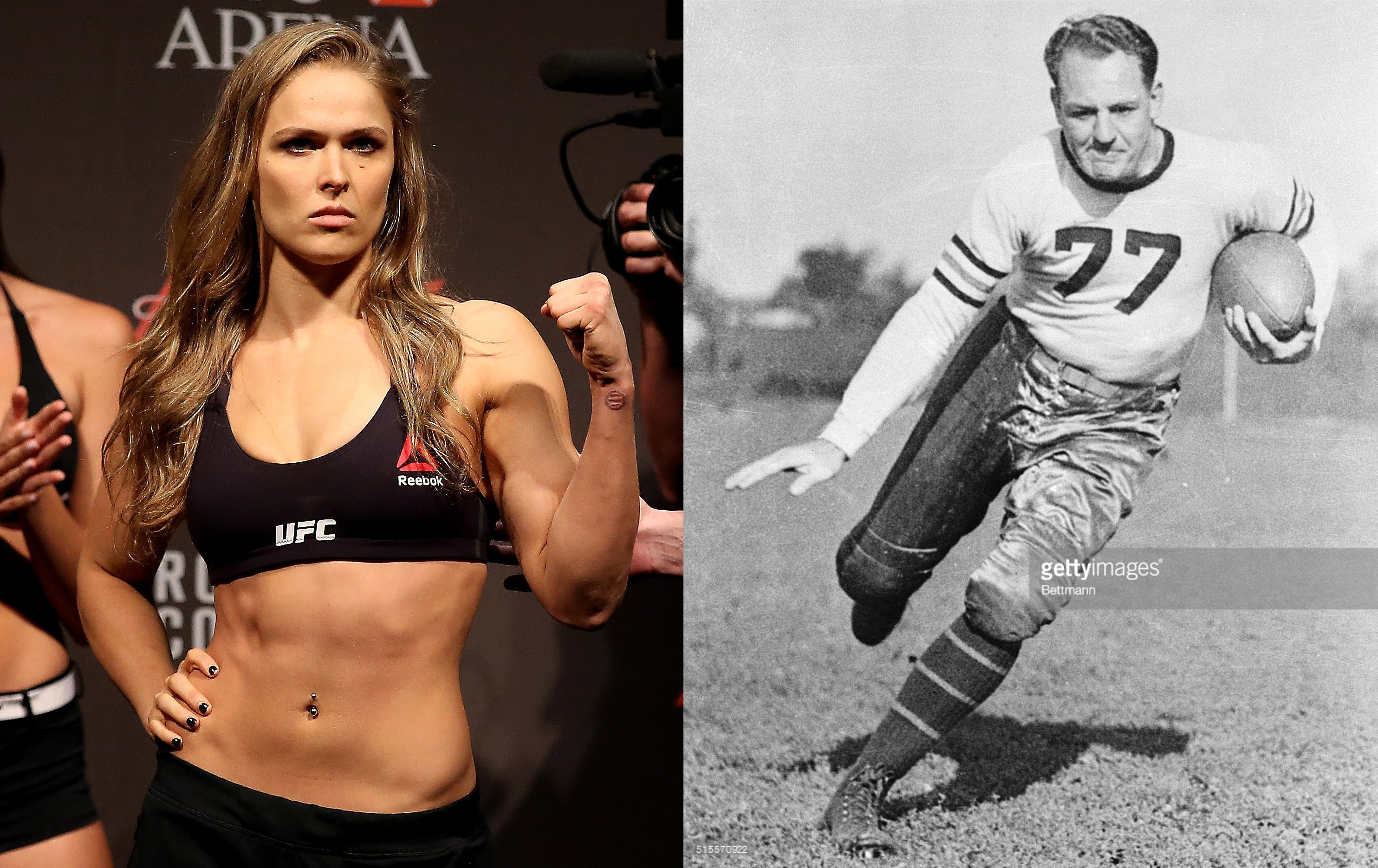
Red Grange, the former Chicago Bears running back and Pro Football Hall of Famer, could be considered the Ronda Rousey of his day. Though official stats give him less than 1,000 rushing yards, less than Lawrence Phillips and Ki-Jana Carter, few if any impacted the game like The Galloping Ghost. Football, like women's MMA today, was certainly present, but dismissed by most of society. The 1920's-30's did not necessarily need football to emerge as one of the most popular sports, as baseball carried the weight of the American sports culture just fine by itself. Grange played for (at the time) the glamour franchise of the infantile NFL, the Chicago Bears, Grange's elusively and star power was enough to swing a few more sets of eyes to the NFL. Eventually, a few turned into a multitude, and the NFL was established as a sport worth paying attention to.
Women's MMA did not need to succeed. In fact, it shouldn't have succeeded. It's harder for a women's league to attract the same national fanfare as male leagues, even if the league is a quality representation of its' sport, like the WNBA. Moreover, in combat sports, women are at even more of a disadvantage. Women's boxing can't even hold a candle to men's boxing in terms of publicity. Since many UFC main cards feature only male bouts, one could reasonably assume the league could have survived without women. Rousey was so dominant, so transcendent, that she forced UFC and the UFC fan community to recognize women as skilled fighters, big draws, and vital members of the organization. That development is one of the most significant moments in both women's athletics and the history of combat sports, and Rousey's pioneering work shouldn't be understated.
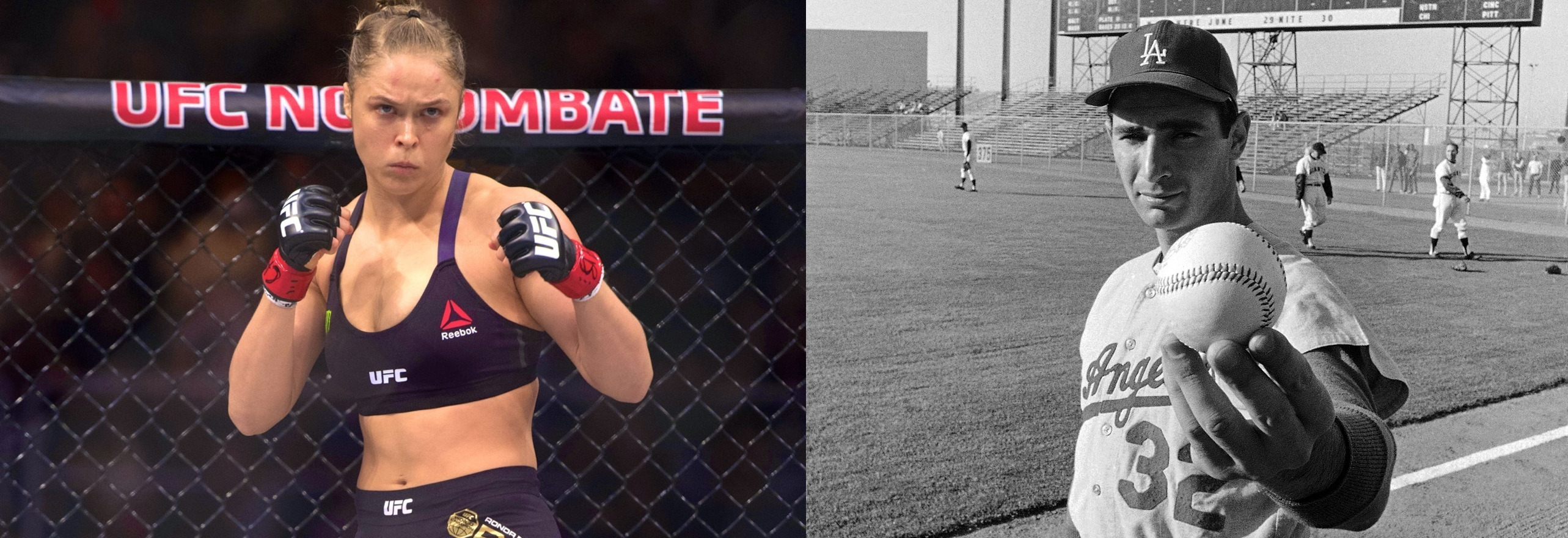
When Ronda Rousey was Ronda Rousey, she was the best female fighter by so wide a gap there were debates if her dominance was ruining the sport. Opponents were routinely dropped in the first round due to ver vicious punching power. Opponents were visibly shaken and made nervous by the mere presence of the unstoppable Rousey. In the 60's hitters felt the same way about Sandy Koufax and his curveball. Those who faced him swear that he was the toughest S.O.B anyone could go up against to this day, Much like Rousey, Koufax's peak was brief, lasting only 5 seasons before he hung it up due to injury concerns that 60's sport medicine could not cure. Rousey's pack was Koufax in the 60's. It was gone before you could blink an eye, but those who caught a glimpse knew that you would never see someone be that dominant again.
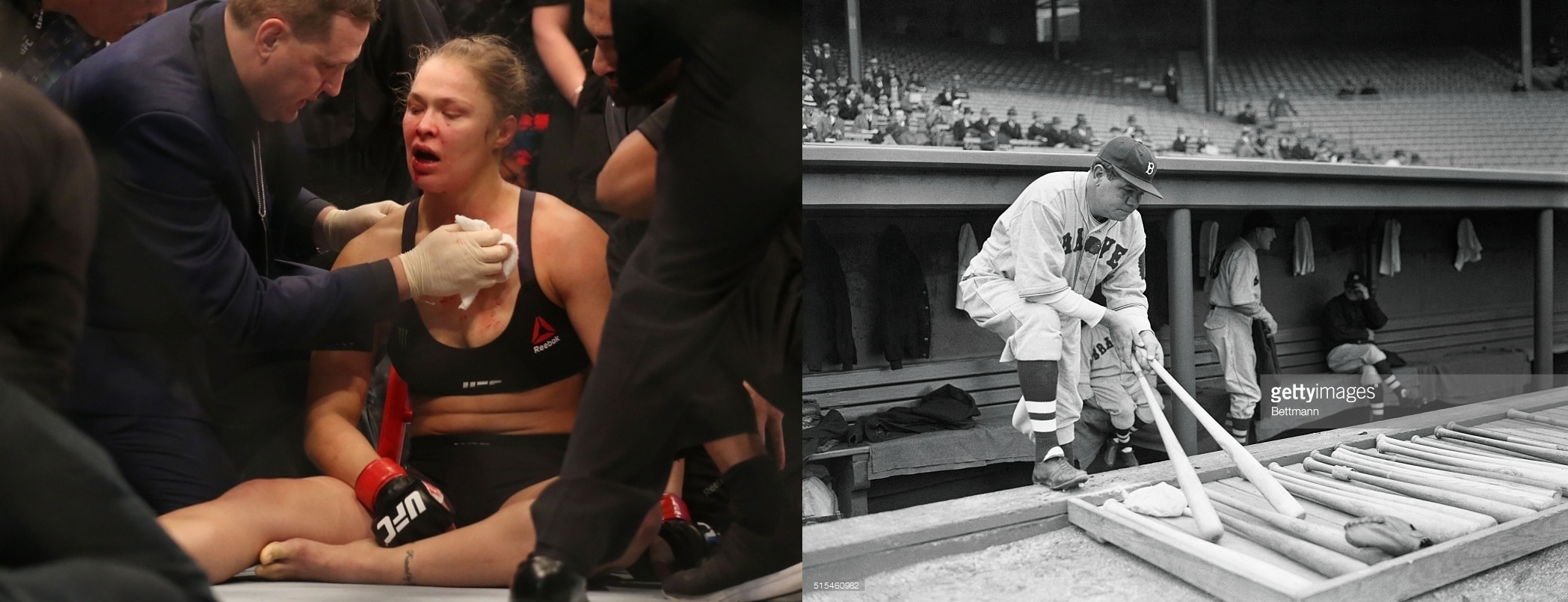
Visibly, Rousey just did not have that killer instinct that made her what she was in her last 2 fights. She looked apprehensive, tentative, and didn't look as mentally sharp as we're used to seeing. What she instilled in her opponents, she was overcome with it. It looked, for lack of a better term, wrong. She herself appeared a shell of her former self. These last fights have sent her career in a very Ruthian bend. Babe Ruth, in case you've been living under a rock you're entire life, was pretty damn good at baseball. His last year in the bigs, 1935, he suited up, at age 40, for the Boston Braves. Everything about the picture above you is not synonymous with the dominant player of yesteryear. His weight ballooned to unhealthy proportions, he struggled to make decent contact, and went from an adept outfielder to a liability. The most shocking thing about this was how quickly he fell off. The year before, he clubbed more than 20 home runs. The year after, he looked as if he'd never been in a batters box. In much the same way as, Rousey has gone from invincible warrior to punching bag overnight, just without the wardrobe change.
At this point, however, Babe Ruth off the field was a much bigger star than Babe Ruth on the field. An American icon then and now, Ruth had several ventures outside of baseball that made him not just a star athlete, but also an American star. Rousey is now doing commercials, making movies, appearing on TV more frequently. Ronda out of the octagon is, at this point, a much stronger and larger entity than Ronda in the octagon. Some stars can manage this influx of fame and notoriety well. Conor McGregor has welcomed extra publicity and flourished in the octagon. Even star women athletes across other athletic disciplines like soccer star Alex Morgan and basketball star Skylar Diggins have learned to integrate outside notoriety into their life while not dropping off professionally. Rousey seems to have been consumed by an almost absurd amount of media attention. Be it through a loss of focus or a drop of in performance, the Ronda Rousey that fought Holly Holm and Amanda Nunes was not the same as the Ronda of old. It's Ruth on the Braves. Unitas on the Chargers. Jordan on the Wizards.
Ronda Rousey's career, by her own admission, was nearing the end. After this, that end may come sooner than later. Unfortunately for her, her pioneering work and her dominance may be obscured just a bit by my #1 enemy, social media, a haven for misinformation and stupidity to spread. It's much easier to get retweets posting a video of Rousey getting knocked out and commenting something witty you stole from someone than waxing about the legendary career that was Rousey's. Social media often lets your biggest missteps overshadows a lifetime of brilliance (see Romo, Tony), and seems intent on perpetrating the falsehood that Rousey was overhyped, or simply not good. Those who payed attention even a little bit know that women'sMMA may never get another Ronda Rousey. I just hope, in my selfish need to see the greats of history treated as such as the years roll by, that when anyone debates the greatest women's MMA icons of all time, Rousey is at or near the top of every list.
Which is where she should be.
From the bottom of my heart, thank you to everyone who has read the Sneaky Athlete in 2016! You reading my writing means the world to me. I look forward to producing more great stuff for you in 2017!
